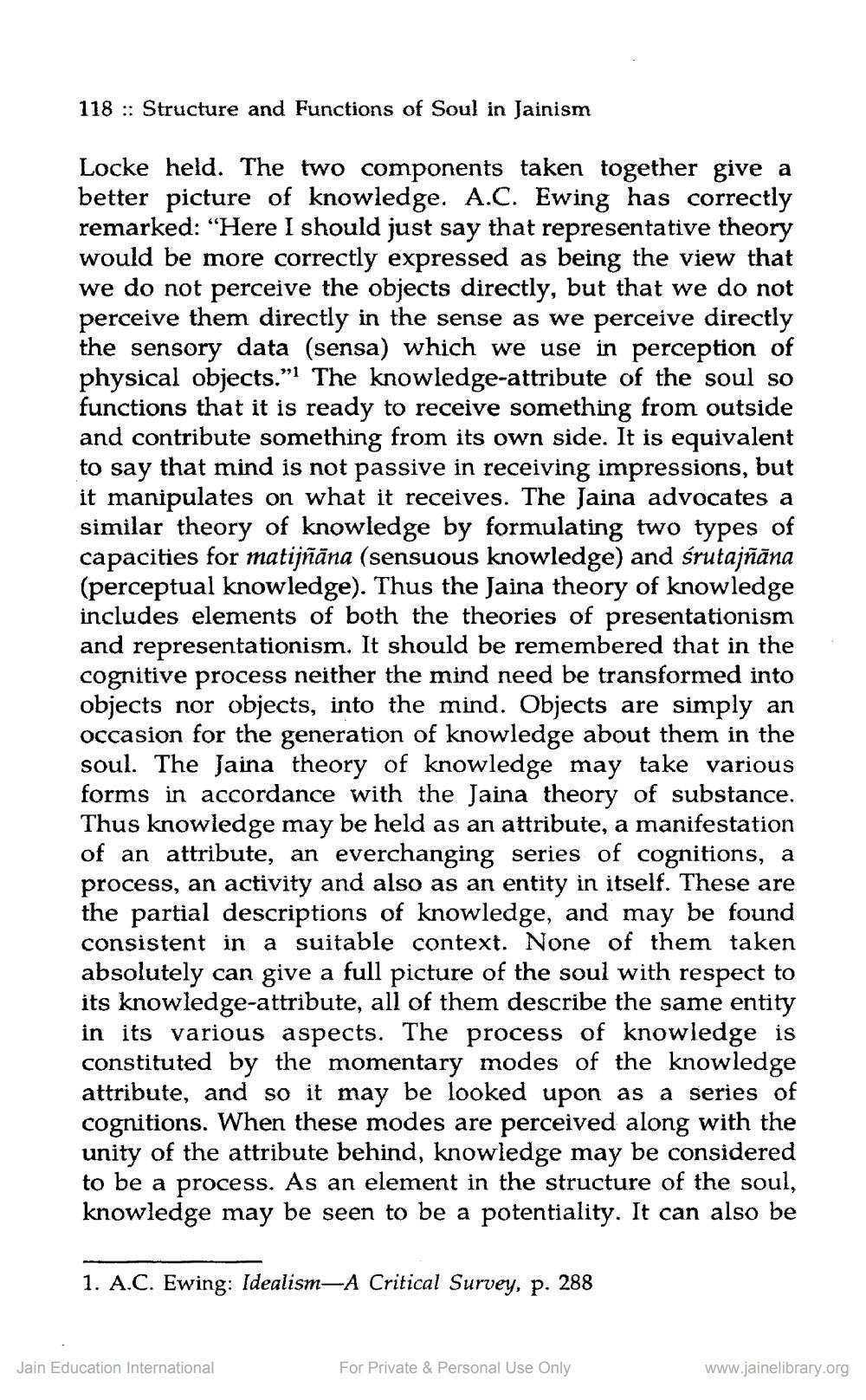________________
118 :: Structure and Functions of Soul in Jainism
Locke held. The two components taken together give a better picture of knowledge. A.C. Ewing has correctly remarked: “Here I should just say that representative theory would be more correctly expressed as being the view that we do not perceive the objects directly, but that we do not perceive them directly in the sense as we perceive directly the sensory data (sensa) which we use in perception of physical objects.”l The knowledge-attribute of the soul so functions that it is ready to receive something from outside and contribute something from its own side. It is equivalent to say that mind is not passive in receiving impressions, but it manipulates on what it receives. The Jaina advocates a similar theory of knowledge by formulating two types of capacities for matijñāna (sensuous knowledge) and śrutajñāna (perceptual knowledge). Thus the Jaina theory of knowledge includes elements of both the theories of presentationism and representationism. It should be remembered that in the cognitive process neither the mind need be transformed into objects nor objects, into the mind. Objects are simply an occasion for the generation of knowledge about them in the soul. The Jaina theory of knowledge may take various forms in accordance with the Jaina theory of substance. Thus knowledge may be held as an attribute, a manifestation of an attribute, an everchanging series of cognitions, a process, an activity and also as an entity in itself. These are the partial descriptions of knowledge, and may be found consistent in a suitable context. None of them taken absolutely can give a full picture of the soul with respect to its knowledge-attribute, all of them describe the same entity in its various aspects. The process of knowledge is constituted by the momentary modes of the knowledge attribute, and so it may be looked upon as a series of cognitions. When these modes are perceived along with the unity of the attribute behind, knowledge may be considered to be a process. As an element in the structure of the soul, knowledge may be seen to be a potentiality. It can also be
1. A.C. Ewing: Idealism-A Critical Survey, p. 288
Jain Education International
For Private & Personal Use Only
www.jainelibrary.org




